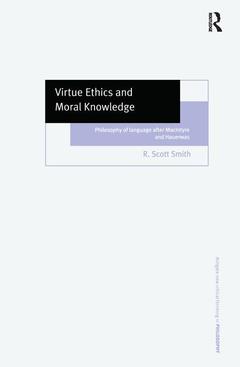Description
Virtue Ethics and Moral Knowledge
Philosophy of Language after MacIntyre and Hauerwas
Ashgate New Critical Thinking in Philosophy Series
Author: Smith R. Scott
Language: English
Keywords
Aquinas’s Virtue Ethics; Extra-linguistic Realm; Private Language Users; Language Independent World; Unconstructed Realm; Virtue Ethics; Christian Virtue Ethics; Unconstructed Reality; Private Language Argument; christian; Aristotle’s Metaphysical Biology; Moral Knowledge; Nominal Community; Epistemic Access; MacIntyre’s Account; Behavioral Account; Humans Qua Humans; MacIntyre’s Claim; Good Life; Mind’s Contact; Linguistic Ascriptions; Christian Philosophical Theology; Midas Touch; Naturalistic Evolutionary Theory; Relativist Charge; MacIntyre’s Solution
158.58 €
Subject to availability at the publisher.
Add to cartPublication date: 02-2003
Support: Print on demand
Publication date: 05-2017
· 15.6x23.4 cm · Paperback
Description
/li>Contents
/li>Biography
/li>




